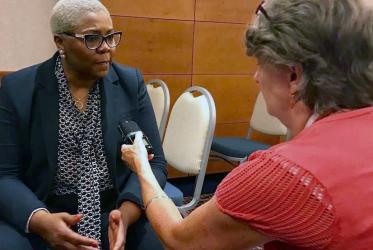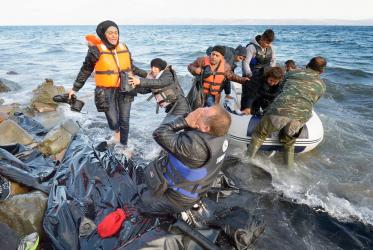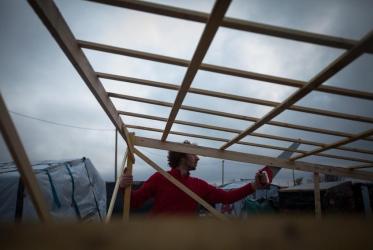Displaying 1 - 20 of 33
World mourns loss of Archbishop Desmond Tutu
30 December 2021
Webinar - “People on the Move: Solidarity and Advocacy”
12 November 2020
https://www.oikoumene.org/live
How can you help refugees?
11 October 2018
Rev. Traci Blackmon: people of faith must not be silent
21 September 2018
Rev. Kenneth Mtata reflects on journey of transition in Zimbabwe
20 September 2018
Pope Francis dialogs with Christian leaders on combating racism
20 September 2018
Catholic official: we must walk and pray together with vulnerable people
19 September 2018
“Called to be a good neighbor”
14 October 2017
WCC speaks on behalf of forcibly displaced persons
28 June 2016
USA Racial Justice Accompaniment Visit
18 April 2016











